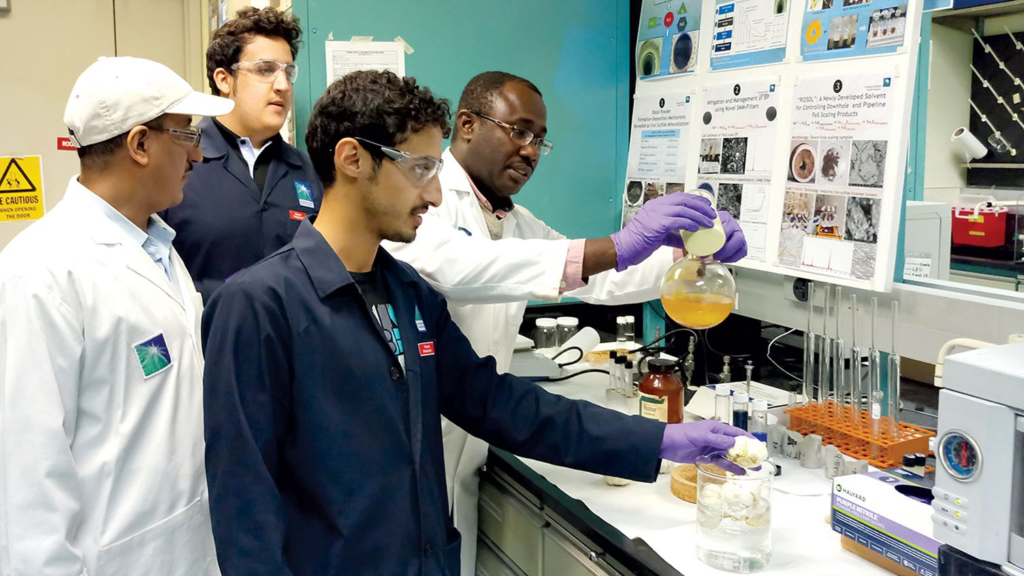Our scientists solving for sulphur

Research scientists at the Saudi Aramco EXPEC Advanced Research Center may be on the cusp of mitigating future elemental sulfur and even removing its deposition tenfold by using a cheaper solid-liquid mixture — simple garlic and low-grade heavy diesel oil.
Environmental regulatory agencies of many countries continue to promote evermore stringent regulations for the combustion of sulfur fuels and subsequent emission of sulfur gases into the atmosphere.
Sulfur occurs in various forms in oil and gas production activities, and its management has brought a new set of challenges to the forefront of oil and gas production. Elemental sulfur deposition problems affect pipeline production operations in many oil industries across the globe, and it is extremely costly to mitigate. The heightened cost of this deposition issue can be attributed to the scant knowledge available on elemental sulfur formation in sour gas.
Seeking a solution
One of the most difficult problems facing operators and engineers in the hydrocarbon industry is how to economically control and prevent the occurrence of sulfur. A number of expensive organic solvents are being used in hydrocarbon treatment plants to control this deposition challenge, yet this erratic and notorious deposition problem re-occurs and builds up over time.
“We want to find a better and cheaper way of delivering high-impact technology solutions in the oil industry,” said Harry Oduro, project leader of Saudi Aramco Sulfur Technology and Analytical Research Laboratory.
Garlic and heavy diesel
Experimenting creatively for far-reaching solutions, our geochemists have been working on a new kind of solvent extract from simple garlic that could dissolve large amounts of pipeline sulfur deposits at reservoir conditions in a shorter time period.
Unlike pricey batch solvents from service companies around the world, the sulfur removal solvent technology uses a special “ionic base” chemical together with garlic and heavy diesel oil to rapidly dissolve sulfur powder and crystals in the laboratory, providing “unique catenation and solubility functions that promote the dissolution of elemental sulfur deposition in our sour gas wells.”
Why garlic?
Oduro explains that organic garlic extracts and its sulfur amino acid components have been widely recognized as agents for the prevention and treatment of cardiovascular and other metabolic diseases.
“It is a great challenge for scientists all around the world to make proper use of aliphatic organosulfur components in garlic to maximize its beneficial effect,” said Oduro, noting that this is the first time garlic extracts have been applied to petroleum research activities to curb large-scale sulfur deposition challenges.
The experimental process has several advantages over other solvents classified as “volatile and dangerous” as they release toxic volatile methylated sulfur compounds. Such solvents can cause health-related issues and adversely affect the environment. In addition, the new solvent can potentially be recycled and used again.






 Email: info@cyber-gear.com
Email: info@cyber-gear.com